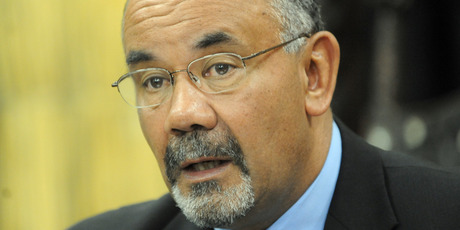By Mark O’Brien
Impunity Watch Reporter, Oceania
WELLINGTON, New Zealand — New Zealand lawmakers this week voted down a bill to add a pledge to uphold the Treaty of Waitangi when new members of parliament swear the oath of allegiance.

The bill from the Maori Party was defeated in a 69 to 52 vote Wednesday, but even before the vote, political observers expected the measure to fail. The New Zealand First party had said the bill was unsupportable because it was a “separatist” proposal, and the National Party had called the bill “unnecessary.”
“It seems like a simple idea, but it’s much broader than that,” said National MP Louise Upston. “It’s about the position of the treaty in our constitution.”
Some opponents worried the inclusion of the pledge would require all new members of parliament to swear to the pledge. Others said this would be an issue to consider later down the road.
“There is an appropriate place for a conversation about national identity, and that is the constitutional review that we are holding,” Upston said.
But Maori MP Te Ururoa Flavell, who drafted the bill, said critics’ concerns were unfounded.
“There’s no compulsion [for every member of parliament to take the oath],” Flavell said. “It’s entirely up to each individual, and it’s about giving a choice to honor the treaty.”
The Treaty of Waitangi was signed by the British government and more than 500 Maori chiefs in 1840. It gave British monarchs the right to rule over New Zealand, but allowed Maori chiefs to keep their land and chieftainships, as well as gave Maori the same rights as British citizens. Since then, interpretation of the Treaty has been controversial, and New Zealand established a Waitangi Tribunal in 1975 to help settle disputes.
“The principle is that the treaty is the nation’s founding document and the government is committed to fulfilling its obligations to the treaty,” Flavell said.
After the vote, the Maori Party quickly criticized Prime Minister John Key and his National Party for deteriorating Treaty relationships.
“Why are they afraid of the treaty?” Flavell asked, calling their vote against the oath “disturbing.”
“Fortunately, many more New Zealanders can see the value the Treaty can add to building unity in a diverse nation, helping us to acknowledge our shared past and move forward together, as seen in our role in government,” he added.
The bill called for adding “I will uphold the Treaty of Waitangi” to the current swearing-in oath, which reads: “I swear that I will be faithful and bear true allegiance to Her Majesty, Queen Elizabeth II, her heirs and successors, according to law, so help me God.”
Also opposing the bill were the ACT and United Future parties. The Labour, Green, and Mana parties also supported the bill.
For further information, please see:
Radio New Zealand — Treaty Oath Bill Dismissal Contrary to True Partnership: Maori Party — 8 November 2012
NZCity News — Treaty Oath Bill Defeated — 7 November 2012
The New Zealand Herald — Labour Considering Support for Swearing Oath to Treaty — 6 November 2012
TangataWhenua.com — National Retreating on Treaty Relationships — 6 November 2012
New Zealand Tourism — Treaty of Waitangi



